 Search by Keyword
|
"I'LL GET YOU"
(John Lennon - Paul McCartney)
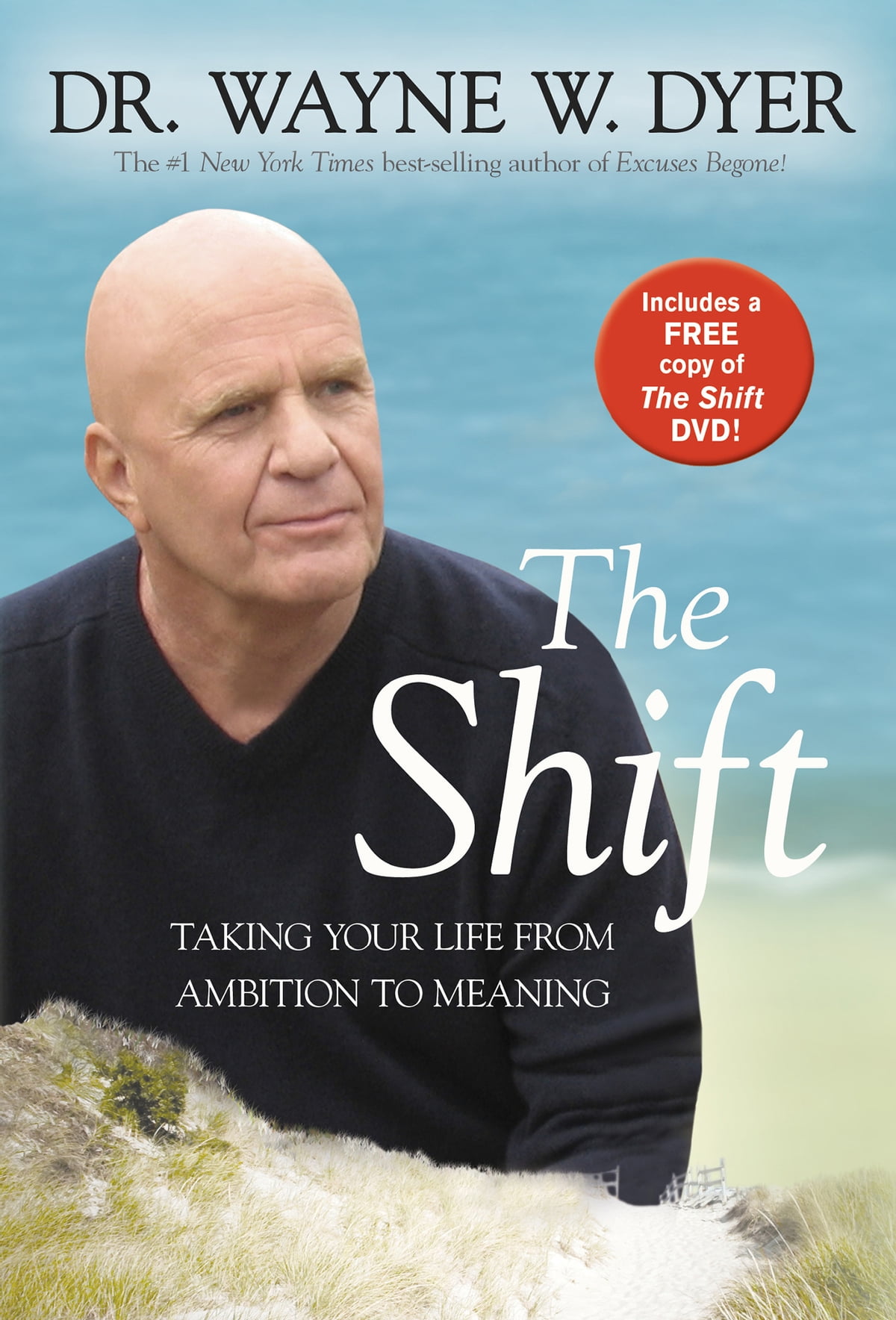 "Creative Visualization" is a process that has been known for centuries but has gained much popularity through the years through publications by authors such as Dr. Wayne Dyer and Rhonda Byrne. This process involves a law of nature which allows us to formulate new experiences and elements of our lives simply by imagining them to be that way. Whatever changes we desire to see come about in our lives, it is believed, will appear through the proper use of our imaginations. "Creative Visualization" is a process that has been known for centuries but has gained much popularity through the years through publications by authors such as Dr. Wayne Dyer and Rhonda Byrne. This process involves a law of nature which allows us to formulate new experiences and elements of our lives simply by imagining them to be that way. Whatever changes we desire to see come about in our lives, it is believed, will appear through the proper use of our imaginations.
Whatever you may believe in regards to this process, the evidence shows that this had been the experience of John Lennon. He imagined his life to be what it became. His determination to be popular beyond compare came true for himself and three of his closest friends who, no doubt, had that same determination.
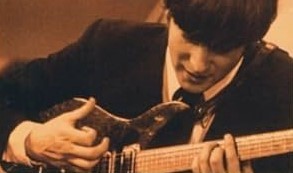 This process also filtered into the lyrics of many of his compositions, first heard in his 1963 song "I'll Get You." Examining its lyrical content, as well as many other songs throughout his extensive career, reveals how John felt he could "imagine" changes into happening, having no doubt that they would. This process also filtered into the lyrics of many of his compositions, first heard in his 1963 song "I'll Get You." Examining its lyrical content, as well as many other songs throughout his extensive career, reveals how John felt he could "imagine" changes into happening, having no doubt that they would.
Songwriting History
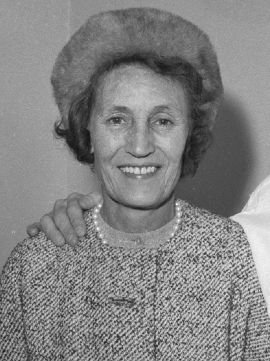 At some point during The Beatles' hectic British touring schedule of June 1963, Lennon and McCartney both convened at John's former home at Menlove Avenue to write their follow up single to "From Me To You." They rarely wrote there, partly because of John's Aunti Mimi disapproving of his music and also because "the necks of our guitars were always banging," McCartney relates, while they sat together on the bed songwriting. "She was a good and very strong-willed woman; she definitely knew her own mind, " Paul relates about Aunt Mimi in his book "The Lyrics," adding, "What's odd about that is that Mimi didn't care so much for our music and would just as soon not have had us around, because she thought we were encouraging John to devote more time to his guitar instead of his studies. Mimi always said, 'The guitar's all right for a hobby, John, but you'll never make a living at it!'" On this occasion, however, they wrote a song that has always been one of Paul's favorites, "I'll Get You." It has been estimated that they completed the song within a two to three hour period of time. At some point during The Beatles' hectic British touring schedule of June 1963, Lennon and McCartney both convened at John's former home at Menlove Avenue to write their follow up single to "From Me To You." They rarely wrote there, partly because of John's Aunti Mimi disapproving of his music and also because "the necks of our guitars were always banging," McCartney relates, while they sat together on the bed songwriting. "She was a good and very strong-willed woman; she definitely knew her own mind, " Paul relates about Aunt Mimi in his book "The Lyrics," adding, "What's odd about that is that Mimi didn't care so much for our music and would just as soon not have had us around, because she thought we were encouraging John to devote more time to his guitar instead of his studies. Mimi always said, 'The guitar's all right for a hobby, John, but you'll never make a living at it!'" On this occasion, however, they wrote a song that has always been one of Paul's favorites, "I'll Get You." It has been estimated that they completed the song within a two to three hour period of time.
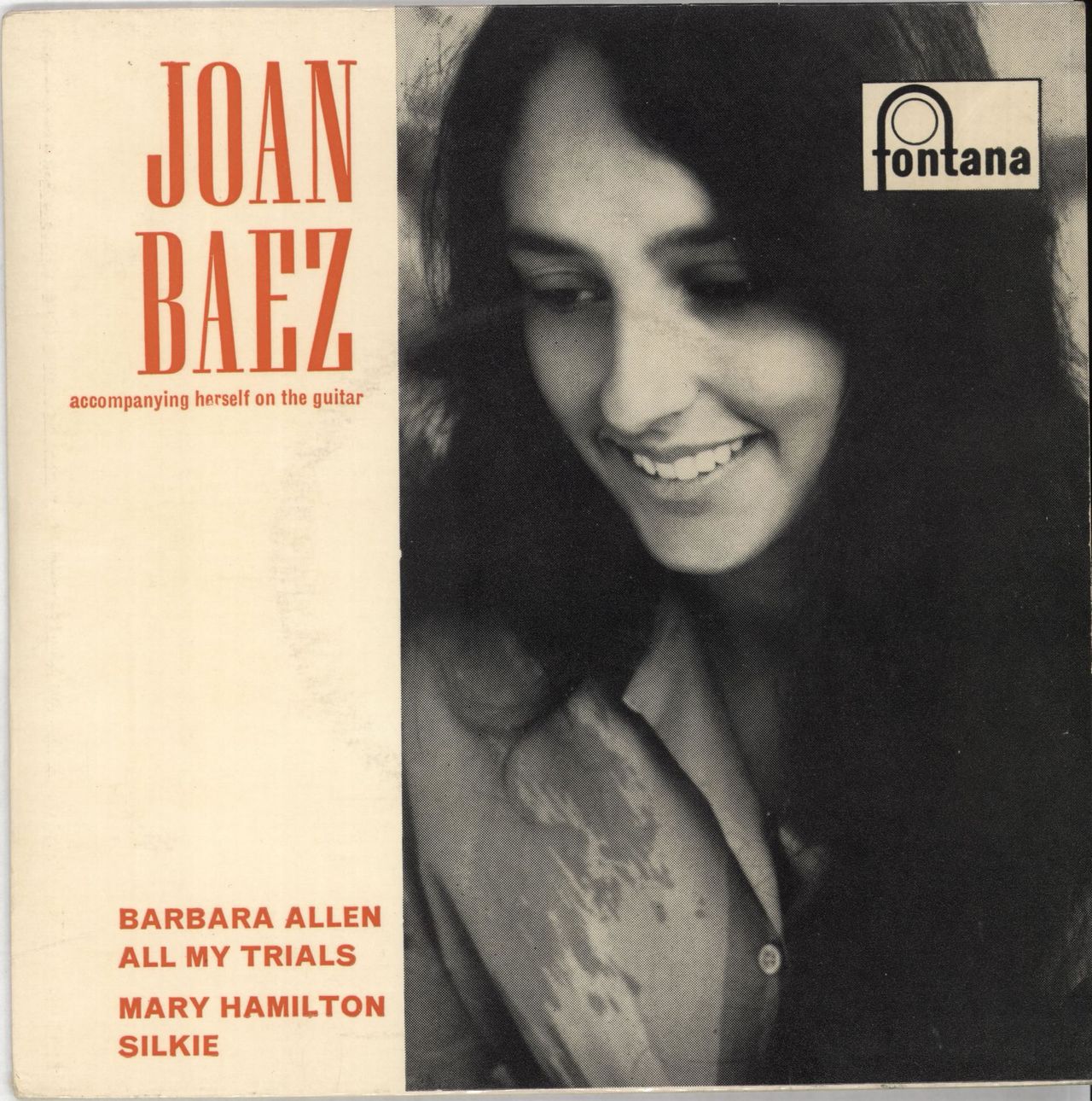 "It's got an interesting chord in it," Paul continues, "'It's not easy to pre-tend...' That was nicked from a song called 'All My Trials' which is on an album I had by Joan Baez." Each verse begins with a similar melody line over an identical chord change, such as the fourth verse which states "If living were a thing that money could buy..." "It's like D, which goes to an A minor, which is unusual," Paul explains, "you'd normally go from a D to an A major. It's a change that had always fascinated me, so I put it in." "It's got an interesting chord in it," Paul continues, "'It's not easy to pre-tend...' That was nicked from a song called 'All My Trials' which is on an album I had by Joan Baez." Each verse begins with a similar melody line over an identical chord change, such as the fourth verse which states "If living were a thing that money could buy..." "It's like D, which goes to an A minor, which is unusual," Paul explains, "you'd normally go from a D to an A major. It's a change that had always fascinated me, so I put it in."
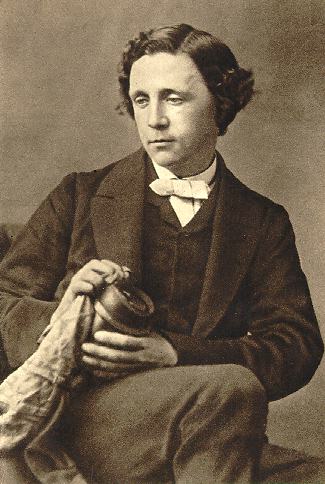 Lyrically, McCartney explains the inspiration for the song to author Barry Miles in his 1997 book "Many Years From Now": "To me and John, though I can't really speak for him, words like 'imagine' and 'picture' were from Lewis Carroll. This idea of asking your listener to imagine, 'Come with me if you will...', 'Enter please into my...', 'Picture yourself in a boat...' It drew you in. It was a good little trick, that. Both of us loved Lewis Carroll and the Alice books and were fascinated by his surreal world so this was a nice song to write." In his book "The Lyrics," Paul adds: "It's also a bit like the opening of 'Lucy In The Sky With Diamonds,' with its exhortation to 'Picture yourself...' So it's a filmic thing, as well as a literary thing. When I say 'literary,' I think of the imagined world of Lewis Carroll that John and I both loved so much. Carroll was a big influence on both of us; that can really be seen in John's book 'In His Own Write' and 'A Spaniard In The Works.'" Lyrically, McCartney explains the inspiration for the song to author Barry Miles in his 1997 book "Many Years From Now": "To me and John, though I can't really speak for him, words like 'imagine' and 'picture' were from Lewis Carroll. This idea of asking your listener to imagine, 'Come with me if you will...', 'Enter please into my...', 'Picture yourself in a boat...' It drew you in. It was a good little trick, that. Both of us loved Lewis Carroll and the Alice books and were fascinated by his surreal world so this was a nice song to write." In his book "The Lyrics," Paul adds: "It's also a bit like the opening of 'Lucy In The Sky With Diamonds,' with its exhortation to 'Picture yourself...' So it's a filmic thing, as well as a literary thing. When I say 'literary,' I think of the imagined world of Lewis Carroll that John and I both loved so much. Carroll was a big influence on both of us; that can really be seen in John's book 'In His Own Write' and 'A Spaniard In The Works.'"
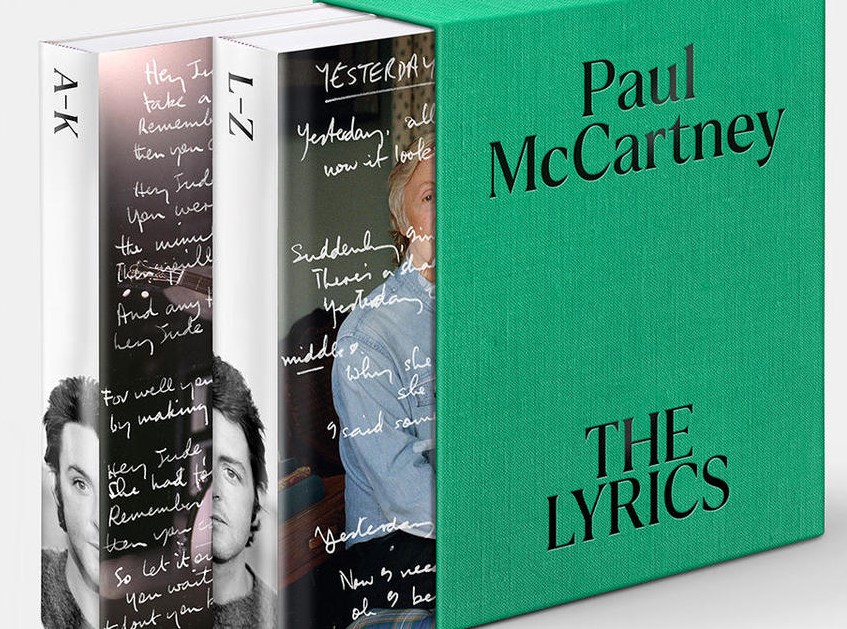 As for the melody, Paul continues in his book "The Lyrics": "With regard to the musical structure, that's a really effective opening - a D major chord as we sing 'Oh yeah' in an octave. We'd learnt the sort of C, A minor, F, G, and D sequences - the straight, 'triady' things. But then you start to juxtapose them a bit, and the opening of 'I'll Get You' is an example of what happens. Otherwise, these are fairly standard chords, until you get to 'It's not like me to pretend.' That's a weird chord under 'pretend.' It doens't quite belong, and that's the secret of this song. It may be a bit much to say that the chord is commenting on the word 'pretend' - suggesting that the character in the song may not be taken at face value, that he's actually pretending to feel, to present a feeling he's not really committed to. That he might just be playing around. In general, though, the sentiment in these early songs is pretty straight up. Not a lot of irony. And that's why people liked, and like, these songs. They say what they mean." As for the melody, Paul continues in his book "The Lyrics": "With regard to the musical structure, that's a really effective opening - a D major chord as we sing 'Oh yeah' in an octave. We'd learnt the sort of C, A minor, F, G, and D sequences - the straight, 'triady' things. But then you start to juxtapose them a bit, and the opening of 'I'll Get You' is an example of what happens. Otherwise, these are fairly standard chords, until you get to 'It's not like me to pretend.' That's a weird chord under 'pretend.' It doens't quite belong, and that's the secret of this song. It may be a bit much to say that the chord is commenting on the word 'pretend' - suggesting that the character in the song may not be taken at face value, that he's actually pretending to feel, to present a feeling he's not really committed to. That he might just be playing around. In general, though, the sentiment in these early songs is pretty straight up. Not a lot of irony. And that's why people liked, and like, these songs. They say what they mean."
 Interestingly, as many have dared to insinuate in later decades, the lyrics "get you in the end" may not be suggestive only in the minds of those of later decades. Regarding these lyrics, McCartney states in "The Lyrics," "Mind you, I think it's fair to say there might be a little bit of schoolboy humor hovering around the idea too." Was anal sex a part of their "schoolboy humor" back in 1963? Looks like it might have been! Interestingly, as many have dared to insinuate in later decades, the lyrics "get you in the end" may not be suggestive only in the minds of those of later decades. Regarding these lyrics, McCartney states in "The Lyrics," "Mind you, I think it's fair to say there might be a little bit of schoolboy humor hovering around the idea too." Was anal sex a part of their "schoolboy humor" back in 1963? Looks like it might have been!
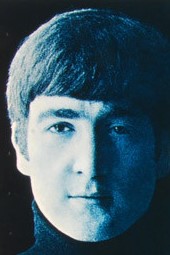 That the song was intended as the next single is confirmed in interviews by both John and Paul in 1963. John stated "The b-side of 'She Loves You' was meant to be the a-side," which McCartney elaborated, "If we write one song, then we can get going after that and get more ideas. We wrote 'I'll Get You,' which is the b-side, first. And then 'She Loves You' came after that...We got ideas from that. Then we recorded it." That the song was intended as the next single is confirmed in interviews by both John and Paul in 1963. John stated "The b-side of 'She Loves You' was meant to be the a-side," which McCartney elaborated, "If we write one song, then we can get going after that and get more ideas. We wrote 'I'll Get You,' which is the b-side, first. And then 'She Loves You' came after that...We got ideas from that. Then we recorded it."
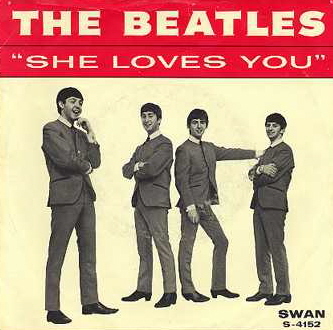 After being convinced that "I'll Get You," which has a tempo and rhythm similar to their previous single "From Me To You," would fit the bill for their next single, that all changed on June 26th, 1963. In a Newcaste-upon-Tyne hotel room after a show, they were inspired to write "She Loves You" which made "I'll Get You" pale in comparison. Lennon later dismissed "I'll Get You," saying "That was Paul and me trying to write a song...and it didn't work out." This quote from 1980 may indicate Lennon's final opinion of the song, but that doesn't dampen the fact that "I'll Get You" is one of the most loved b-sides of their career. After being convinced that "I'll Get You," which has a tempo and rhythm similar to their previous single "From Me To You," would fit the bill for their next single, that all changed on June 26th, 1963. In a Newcaste-upon-Tyne hotel room after a show, they were inspired to write "She Loves You" which made "I'll Get You" pale in comparison. Lennon later dismissed "I'll Get You," saying "That was Paul and me trying to write a song...and it didn't work out." This quote from 1980 may indicate Lennon's final opinion of the song, but that doesn't dampen the fact that "I'll Get You" is one of the most loved b-sides of their career.
Recording History
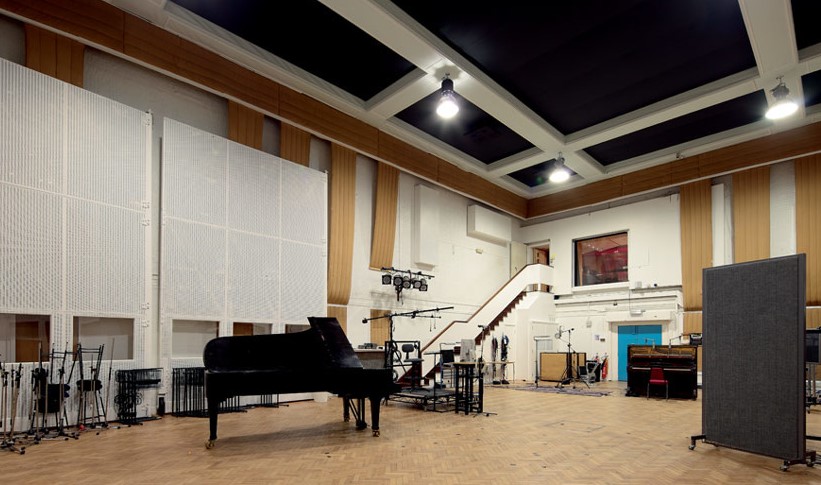 July 1st, 1963, was the date scheduled for The Beatles to record their fourth single. The band entered EMI Studio Two for the afternoon session, 2:30 to 5:30 pm, to record what they decided would be the a-side of this single, the newly written song "She Loves You." Having completed the song in these three hours, the evening session, 7 to 10 pm, would be devoted entirely to the b-side of the single, which was entitled "Get You In The End" at this early stage. July 1st, 1963, was the date scheduled for The Beatles to record their fourth single. The band entered EMI Studio Two for the afternoon session, 2:30 to 5:30 pm, to record what they decided would be the a-side of this single, the newly written song "She Loves You." Having completed the song in these three hours, the evening session, 7 to 10 pm, would be devoted entirely to the b-side of the single, which was entitled "Get You In The End" at this early stage.
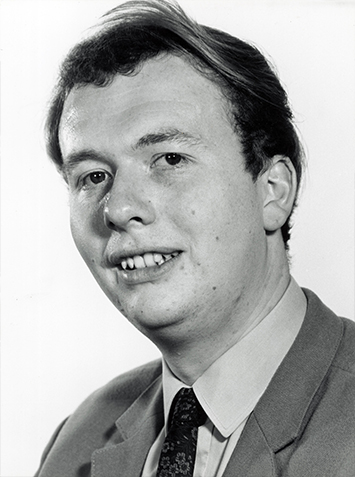 The number of takes needed for The Beatles to complete "I'll Get You" is not known, although engineer Geoff Emerick remembers "it took quite a bit of time to record, and the session ran a little overtime." Listening very closely to the finished product reveals that the band recorded it live with guitars, bass, drums and vocals performed simultaneously. Since Lennon's harmonica is heard almost throughout the whole song, even while he is singing, this had to have been overdubbed afterward as the finishing touch of the recording, as was a bit of handclapping by the group in the introduction. The number of takes needed for The Beatles to complete "I'll Get You" is not known, although engineer Geoff Emerick remembers "it took quite a bit of time to record, and the session ran a little overtime." Listening very closely to the finished product reveals that the band recorded it live with guitars, bass, drums and vocals performed simultaneously. Since Lennon's harmonica is heard almost throughout the whole song, even while he is singing, this had to have been overdubbed afterward as the finishing touch of the recording, as was a bit of handclapping by the group in the introduction.
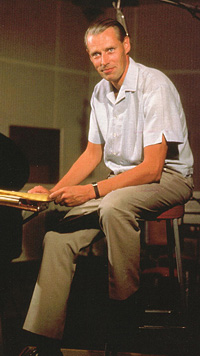 One thing witnessed on the finished recording is the vocal mistakes that are made, especially noticeable in the song's bridge. Given the band's extremely busy touring schedule, as well as the fact that they had just finished pouring their hearts out on "She Loves You" moments before (not to mention having to escape many hysterical, screaming girls that broke into the studio earlier on that day), all involved probably just 'made do' with the performance as it was. Geoff Emerick concludes that George Martin had just "let it go, on the theory that most listeners wouldn't hear it. That plus the studio clock was always ticking; time was money." Although these mistakes are much more noticeable on CD than on the old records, they still add an interesting "character" to the song. One thing witnessed on the finished recording is the vocal mistakes that are made, especially noticeable in the song's bridge. Given the band's extremely busy touring schedule, as well as the fact that they had just finished pouring their hearts out on "She Loves You" moments before (not to mention having to escape many hysterical, screaming girls that broke into the studio earlier on that day), all involved probably just 'made do' with the performance as it was. Geoff Emerick concludes that George Martin had just "let it go, on the theory that most listeners wouldn't hear it. That plus the studio clock was always ticking; time was money." Although these mistakes are much more noticeable on CD than on the old records, they still add an interesting "character" to the song.
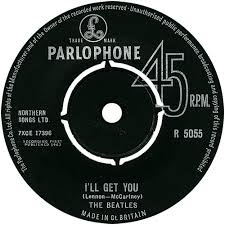 The mono mix of the song was created three days later, July 4th, 1963, in the control room of EMI Studio Two by George Martin and Geoff Emerick. The title was still "Get You In The End," even at this point, so sometime between July 4th and when the single was released in Britain on August 23rd, 1963, they had decided to rename the song "I'll Get You." The mono mix of the song was created three days later, July 4th, 1963, in the control room of EMI Studio Two by George Martin and Geoff Emerick. The title was still "Get You In The End," even at this point, so sometime between July 4th and when the single was released in Britain on August 23rd, 1963, they had decided to rename the song "I'll Get You."
Since the song was only intended as a single, a stereo mix was not required and was never made. Standard procedure at EMI Studios at the time for songs intended for singles was to erase the original two-track session tape after the songs were mixed down to the mono master tape used to press the single, salvaging the "costly" tape for a future session. This, unfortunately, was the fate of "I'll Get You," as well as its a-side "She Loves You" and their first single "Love Me Do" and "P.S. I Love You." "I'll Get You" did appear on stereo albums in the US as well as in other countries, but duophonic (fake stereo) versions were created to simulate stereo (most bass frequencies on one channel, most treble frequencies on the other).
.jpg) Just two weeks after "I'll Get You" was recorded at EMI Studio Two, they recorded a new rendition of the song specifically for the ninth edition of their BBC radio show called "Pop Go The Beatles" on July 16th, 1963 at BBC Paris Studio in London between 6 and 8:30 pm, this being produced by Terry Henebery and broadcast on August 13th, 1963 between 5 and 5:29 pm, ten days before the single was released in the UK. This song was then recorded again for the BBC program "Saturday Club" on July 30th, 1963, at Playhouse Theatre in London, estimated to have been recorded between 3 and 4:30 pm, this being produced by Jimmy Grant and Bernie Andrews and aired on August 24th, 1963, the day after the official UK single had been released. Just two weeks after "I'll Get You" was recorded at EMI Studio Two, they recorded a new rendition of the song specifically for the ninth edition of their BBC radio show called "Pop Go The Beatles" on July 16th, 1963 at BBC Paris Studio in London between 6 and 8:30 pm, this being produced by Terry Henebery and broadcast on August 13th, 1963 between 5 and 5:29 pm, ten days before the single was released in the UK. This song was then recorded again for the BBC program "Saturday Club" on July 30th, 1963, at Playhouse Theatre in London, estimated to have been recorded between 3 and 4:30 pm, this being produced by Jimmy Grant and Bernie Andrews and aired on August 24th, 1963, the day after the official UK single had been released.
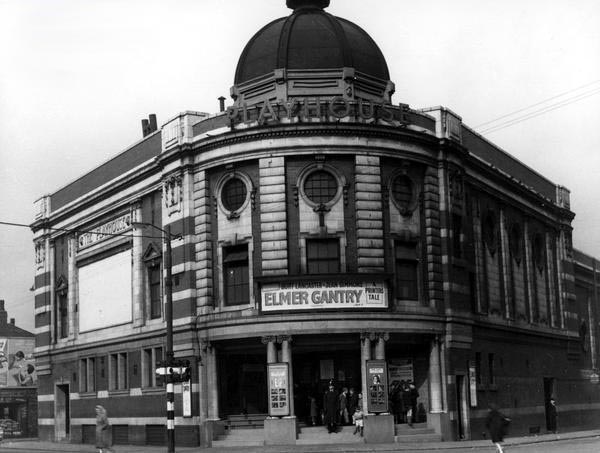 August 1st, 1963 saw them record the song for the twelfth edition of "Pop Go The Beatles" at The Playhouse Theatre in Manchester between 4 and 6 pm, this being produced by Terry Henebery and aired on September 3rd of that year between 5 and 5:29 pm. Then on September 3rd, 1963, The Beatles recorded yet another version of "I'll Get You" in Studio Two of Aeolian Hall in London between 2 and 4:30 pm for the thirteenth episode of ""Pop Go The Beatles," which was produced by Terry Henebery and broadcast on September 10th, 1963 between 5 and 5:29 pm. On September 7th, 1963, Bernie Andrews produced their final recording of "I'll Get You" at The Playhouse Theatre in London between 1 and 4 pm for a special edition of "Saturday Club" that was heard by about nine million listeners who tuned in on October 5th of that year between 10 am and noon. August 1st, 1963 saw them record the song for the twelfth edition of "Pop Go The Beatles" at The Playhouse Theatre in Manchester between 4 and 6 pm, this being produced by Terry Henebery and aired on September 3rd of that year between 5 and 5:29 pm. Then on September 3rd, 1963, The Beatles recorded yet another version of "I'll Get You" in Studio Two of Aeolian Hall in London between 2 and 4:30 pm for the thirteenth episode of ""Pop Go The Beatles," which was produced by Terry Henebery and broadcast on September 10th, 1963 between 5 and 5:29 pm. On September 7th, 1963, Bernie Andrews produced their final recording of "I'll Get You" at The Playhouse Theatre in London between 1 and 4 pm for a special edition of "Saturday Club" that was heard by about nine million listeners who tuned in on October 5th of that year between 10 am and noon.
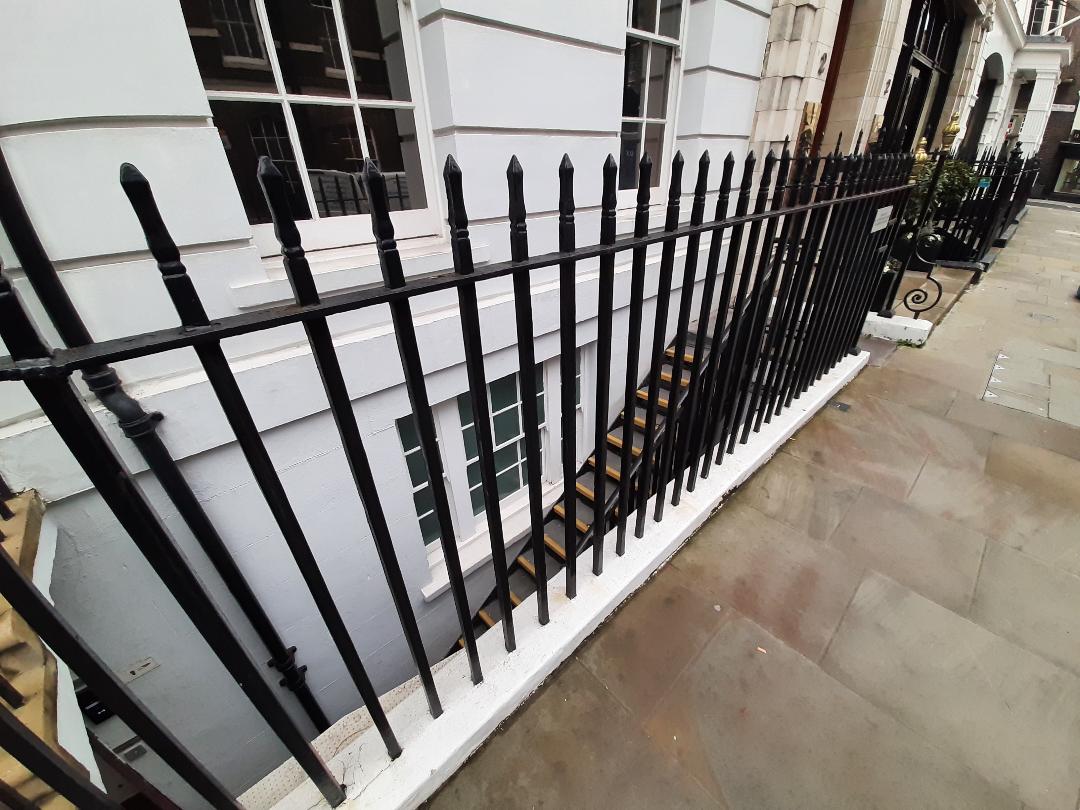 The Beatles did perform "I'll Get You" once more in a recording studio as an impromptu performance on January 23rd, 1969 in the basement studio of their Apple building at 3 Savile Row in London during rehearsals for the song "Get Back" for what became the "Let It Be" album. This version, of course, never saw the light of day. The Beatles did perform "I'll Get You" once more in a recording studio as an impromptu performance on January 23rd, 1969 in the basement studio of their Apple building at 3 Savile Row in London during rehearsals for the song "Get Back" for what became the "Let It Be" album. This version, of course, never saw the light of day.
Song Structure and Style
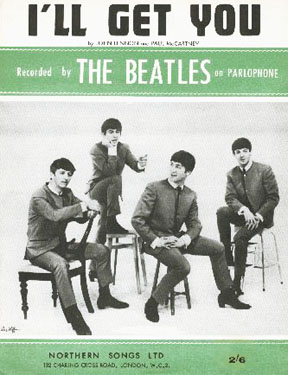 Strictly speaking, "I'll Get You" follows the common 'verse/ verse/ bridge/ verse' pattern (or aaba), which is not unlike earlier Lennon / McCartney collaborations such as "Please Please Me" and "Do You Want To Know A Secret." This is not to say that there aren't a few surprises along the way, this being strong evidence of their growth in songwriting and an indication of many structural surprises in the coming years. Strictly speaking, "I'll Get You" follows the common 'verse/ verse/ bridge/ verse' pattern (or aaba), which is not unlike earlier Lennon / McCartney collaborations such as "Please Please Me" and "Do You Want To Know A Secret." This is not to say that there aren't a few surprises along the way, this being strong evidence of their growth in songwriting and an indication of many structural surprises in the coming years.
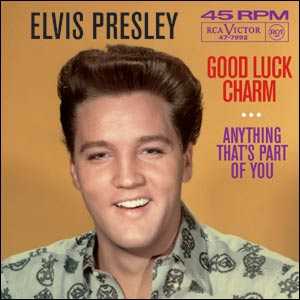 First off, we see a four measure introduction that also appears as the conclusion of the song. There is also a later reoccurrence of this intro in a two-measure form at the end of the first and second verses. This introduction comprises the use of the purposely included 'Americanism' "oh yeah," no doubt in imitation of Elvis Presley's 1962 hit "Good Luck Charm." "I liked that slightly f*ggy way we sang 'oh yeah, oh yeah,' which was very distinctive, very Beatley," Paul explained in the book "Many Years From Now," describing the heavy scouse accents that The Beatles injected into their vocal style at times. First off, we see a four measure introduction that also appears as the conclusion of the song. There is also a later reoccurrence of this intro in a two-measure form at the end of the first and second verses. This introduction comprises the use of the purposely included 'Americanism' "oh yeah," no doubt in imitation of Elvis Presley's 1962 hit "Good Luck Charm." "I liked that slightly f*ggy way we sang 'oh yeah, oh yeah,' which was very distinctive, very Beatley," Paul explained in the book "Many Years From Now," describing the heavy scouse accents that The Beatles injected into their vocal style at times.
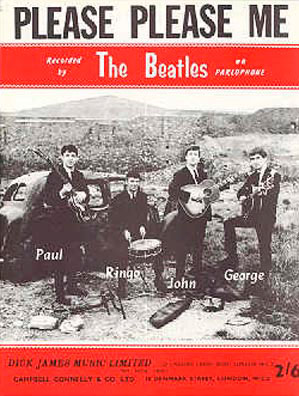 We next hear the first verse, which totals a whopping 16 measures. These measures can actually be divided into four distinct sections. The main section consists of the first eight measures, which fulfills the common role of setting the stage for the song lyrically. Then the second section of the verse is two measures long, which is included for the purpose of exhibiting McCartney's "All My Trials" chord change and melody line. This section momentarily interrupts the flow and works as a small bridge, per se, into the refrain section of the verse that follows, which is a predictable four measures long and repeats the lyrical hook of the song, similar to "Please Please Me." The final two measures of the verse hit us with the "oh yeah" introduction, but in a shortened form. We next hear the first verse, which totals a whopping 16 measures. These measures can actually be divided into four distinct sections. The main section consists of the first eight measures, which fulfills the common role of setting the stage for the song lyrically. Then the second section of the verse is two measures long, which is included for the purpose of exhibiting McCartney's "All My Trials" chord change and melody line. This section momentarily interrupts the flow and works as a small bridge, per se, into the refrain section of the verse that follows, which is a predictable four measures long and repeats the lyrical hook of the song, similar to "Please Please Me." The final two measures of the verse hit us with the "oh yeah" introduction, but in a shortened form.
 After a second verse is heard, which is structurally identical to first except for different lyrics, we go into a straightforward eight measure bridge, which segues nicely back into a repeat of the first verse. This repeated verse is extended three more measures so as to reprise the full four measure introduction, adding a final "oh yeah" to conclude the song. There is no solo or instrumental section to the song, so the structure stays compact within the aaba format. After a second verse is heard, which is structurally identical to first except for different lyrics, we go into a straightforward eight measure bridge, which segues nicely back into a repeat of the first verse. This repeated verse is extended three more measures so as to reprise the full four measure introduction, adding a final "oh yeah" to conclude the song. There is no solo or instrumental section to the song, so the structure stays compact within the aaba format.
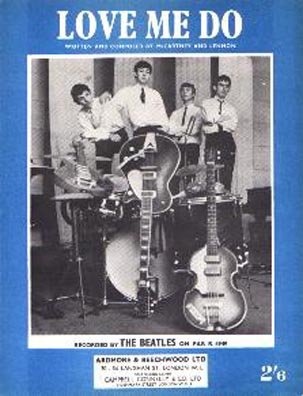 Lennon appears to take command throughout, singing lead vocals and playing harmonica for the entire song (except for the bridge). John's harmonica is playing scarcely more than a rhythmic role in the song, since no riff or solo is being played (such as in "Love Me Do" or "Little Child"). Both his and Harrison's guitar work are strictly rhythm, emphasizing the swing style heard in "Misery." Because only a mono version of the song exists, it is barely discernible whether or not there are even two guitars in the song. McCartney plays "plumpy rounded bass," as is described by Ian MacDonald in his book "Revolution In The Head." Ringo's role appears to be nothing more than metronome, except for the small fill that introduces the first verse and an open hi-hat in the 11th measure of each verse. Lennon appears to take command throughout, singing lead vocals and playing harmonica for the entire song (except for the bridge). John's harmonica is playing scarcely more than a rhythmic role in the song, since no riff or solo is being played (such as in "Love Me Do" or "Little Child"). Both his and Harrison's guitar work are strictly rhythm, emphasizing the swing style heard in "Misery." Because only a mono version of the song exists, it is barely discernible whether or not there are even two guitars in the song. McCartney plays "plumpy rounded bass," as is described by Ian MacDonald in his book "Revolution In The Head." Ringo's role appears to be nothing more than metronome, except for the small fill that introduces the first verse and an open hi-hat in the 11th measure of each verse.
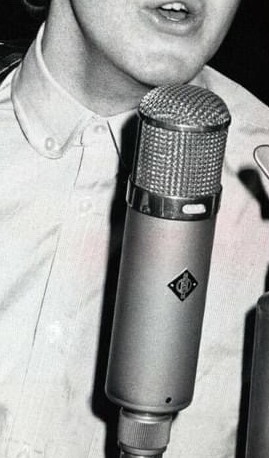 Paul's harmonies are brilliantly orchestrated (undoubtedly by George Martin) to appear sporadically throughout the verses and continually in the bridge. Otherwise, he sings in unison during the verses, making it almost sound as if John's vocals were double-tracked. In fact, opinions vary as to which melody line, John's or Paul's, is actually the lead melody line. Since either could be true, both are credited here as "lead vocalist" on this song. Paul's harmonies are brilliantly orchestrated (undoubtedly by George Martin) to appear sporadically throughout the verses and continually in the bridge. Otherwise, he sings in unison during the verses, making it almost sound as if John's vocals were double-tracked. In fact, opinions vary as to which melody line, John's or Paul's, is actually the lead melody line. Since either could be true, both are credited here as "lead vocalist" on this song.
A clever melody line in the bridge shows the nuances that were beginning to creep into the Lennon / McCartney arsenal even at this early date. A descending three note pattern is heard (as heard during the words "gonna be a time") as the lead melody line, which is then repeated three times over three different chords. McCartney and Harrison alter their background vocals strategically during these lines to create an irresistible interplay of Beatles voices.
 As for the vocal flub during the bridge, one of the vocalists sings "I'm gonna make you mine" instead of the correct lyric, which is "change your mind." George Martin may have thought that no one would notice, but that wasn't the case. A British fan, Margaret from Bristol, went as far as writing EMI to point out the error, asking them to "put this in order." The studio responded with a letter of apology, dated September 2nd, 1963. As for the vocal flub during the bridge, one of the vocalists sings "I'm gonna make you mine" instead of the correct lyric, which is "change your mind." George Martin may have thought that no one would notice, but that wasn't the case. A British fan, Margaret from Bristol, went as far as writing EMI to point out the error, asking them to "put this in order." The studio responded with a letter of apology, dated September 2nd, 1963.
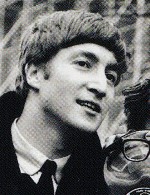 The lyrics appear to be more than just a self-pep talk, but rather an assurance that the singer will acquire what he wills. The positive major key paired with the confident display of bravado suggest playful desire, not threat. The singers' 'imagining' and 'pretending' will without doubt bring her to him, even though she doesn't feel the same as he does at the present time. "There's gonna be a time when I'm gonna change your mind," Lennon predicts. She may as well give up now ("resign herself") because it's definitely going to happen. She apparently has no say in the matter. Call it fate or the "law of attraction"; either way, it's a done deal. The lyrics appear to be more than just a self-pep talk, but rather an assurance that the singer will acquire what he wills. The positive major key paired with the confident display of bravado suggest playful desire, not threat. The singers' 'imagining' and 'pretending' will without doubt bring her to him, even though she doesn't feel the same as he does at the present time. "There's gonna be a time when I'm gonna change your mind," Lennon predicts. She may as well give up now ("resign herself") because it's definitely going to happen. She apparently has no say in the matter. Call it fate or the "law of attraction"; either way, it's a done deal.
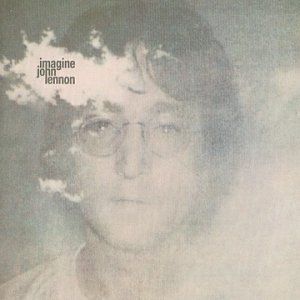 While many authors have noted a similarity between the first line in "I'll Get You" ("Imagine I'm in love with you, it's easy 'cause I know") and the first line of his 1971 classic "Imagine" ("Imagine there's no heaven, it's easy if you try"), coincidence may actually be at play here. One thing that can be said is that his style of writing, as well as his train of thought, was striking a pattern even from these early beginnings. While many authors have noted a similarity between the first line in "I'll Get You" ("Imagine I'm in love with you, it's easy 'cause I know") and the first line of his 1971 classic "Imagine" ("Imagine there's no heaven, it's easy if you try"), coincidence may actually be at play here. One thing that can be said is that his style of writing, as well as his train of thought, was striking a pattern even from these early beginnings.
American Releases
 The song "I'll Get You" first hit American shores on September 16th, 1963, as the b-side of "She Loves You" on the Philadelphia based Swan Records label. Capitol having viewed the single unsuitable for US audiences, Swan picked up the slack, which at first seemed to be a bad decision. The record flopped until Beatlemania finally swept the states in January of 1964. They quickly decided to print more copies of the single and "She Loves You" topped the Billboard Hot 100. The song "I'll Get You" first hit American shores on September 16th, 1963, as the b-side of "She Loves You" on the Philadelphia based Swan Records label. Capitol having viewed the single unsuitable for US audiences, Swan picked up the slack, which at first seemed to be a bad decision. The record flopped until Beatlemania finally swept the states in January of 1964. They quickly decided to print more copies of the single and "She Loves You" topped the Billboard Hot 100.
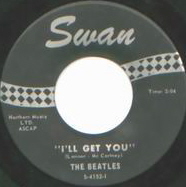 The original copies of the Swan 45 were mostly white with red lettering and sometimes included the bold words "Don't Drop Out." This verbiage was included on many Swan Records releases to encourage youths to stay in school. When the later pressings were made, they were on Swan's black labels with silver lettering, most of the pressings containing "Don't Drop Out" on the label. The first pressings, of course, are the most valuable today, if you can be sure it's not a bootleg. The original copies of the Swan 45 were mostly white with red lettering and sometimes included the bold words "Don't Drop Out." This verbiage was included on many Swan Records releases to encourage youths to stay in school. When the later pressings were made, they were on Swan's black labels with silver lettering, most of the pressings containing "Don't Drop Out" on the label. The first pressings, of course, are the most valuable today, if you can be sure it's not a bootleg.
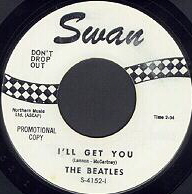 The second US release of "I'll Get You" actually has a deep connection with the first release. After "She Loves You" had run its course on the charts in 1964, Swan Records decided to focus on its b-side, distributing promotional copies of "I'll Get You" on one side of the single with nothing on the other; just smooth vinyl with a blank label. While most of The Beatles singles of the '60s had both sides place on the US Top 100 chart, this one didn't. Swan's attempts fell flat, which is a shame due to the great song that lay hidden on the b-side of "She Loves You." The second US release of "I'll Get You" actually has a deep connection with the first release. After "She Loves You" had run its course on the charts in 1964, Swan Records decided to focus on its b-side, distributing promotional copies of "I'll Get You" on one side of the single with nothing on the other; just smooth vinyl with a blank label. While most of The Beatles singles of the '60s had both sides place on the US Top 100 chart, this one didn't. Swan's attempts fell flat, which is a shame due to the great song that lay hidden on the b-side of "She Loves You."
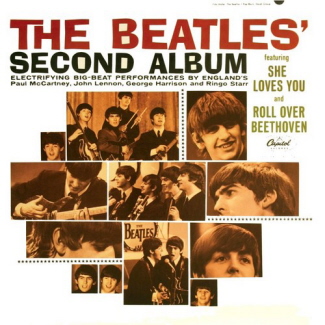 The next release was on April 10th, 1964 on the Capitol album "The Beatles' Second Album." Swan may have acquired the license to release the song as a single, but Capitol still had the right to include it on an album. As detailed above, the stereo copies of the album contained a "duophonic" stereo mix of the song that was created by Capitol on March 5th, 1964. On January 21st, 2014, this album was released as an individual compact disc for the first time, the mono and "duophonic" stereo mixes being contained on a single CD. The next release was on April 10th, 1964 on the Capitol album "The Beatles' Second Album." Swan may have acquired the license to release the song as a single, but Capitol still had the right to include it on an album. As detailed above, the stereo copies of the album contained a "duophonic" stereo mix of the song that was created by Capitol on March 5th, 1964. On January 21st, 2014, this album was released as an individual compact disc for the first time, the mono and "duophonic" stereo mixes being contained on a single CD.
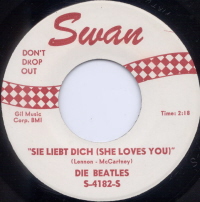 The next US release of "I'll Get You" was on Swan and was also as a b-side. This May 21, 1964 released single was the German language version of "She Loves You," titled "Sie Liebt Dich." The artist name was listed as Die Beatles for authenticity's sake and peaked at #97 on the Billboard Hot 100. The record was only in print for a limited time and was released on very shaky legal grounds to begin with. The next US release of "I'll Get You" was on Swan and was also as a b-side. This May 21, 1964 released single was the German language version of "She Loves You," titled "Sie Liebt Dich." The artist name was listed as Die Beatles for authenticity's sake and peaked at #97 on the Billboard Hot 100. The record was only in print for a limited time and was released on very shaky legal grounds to begin with.
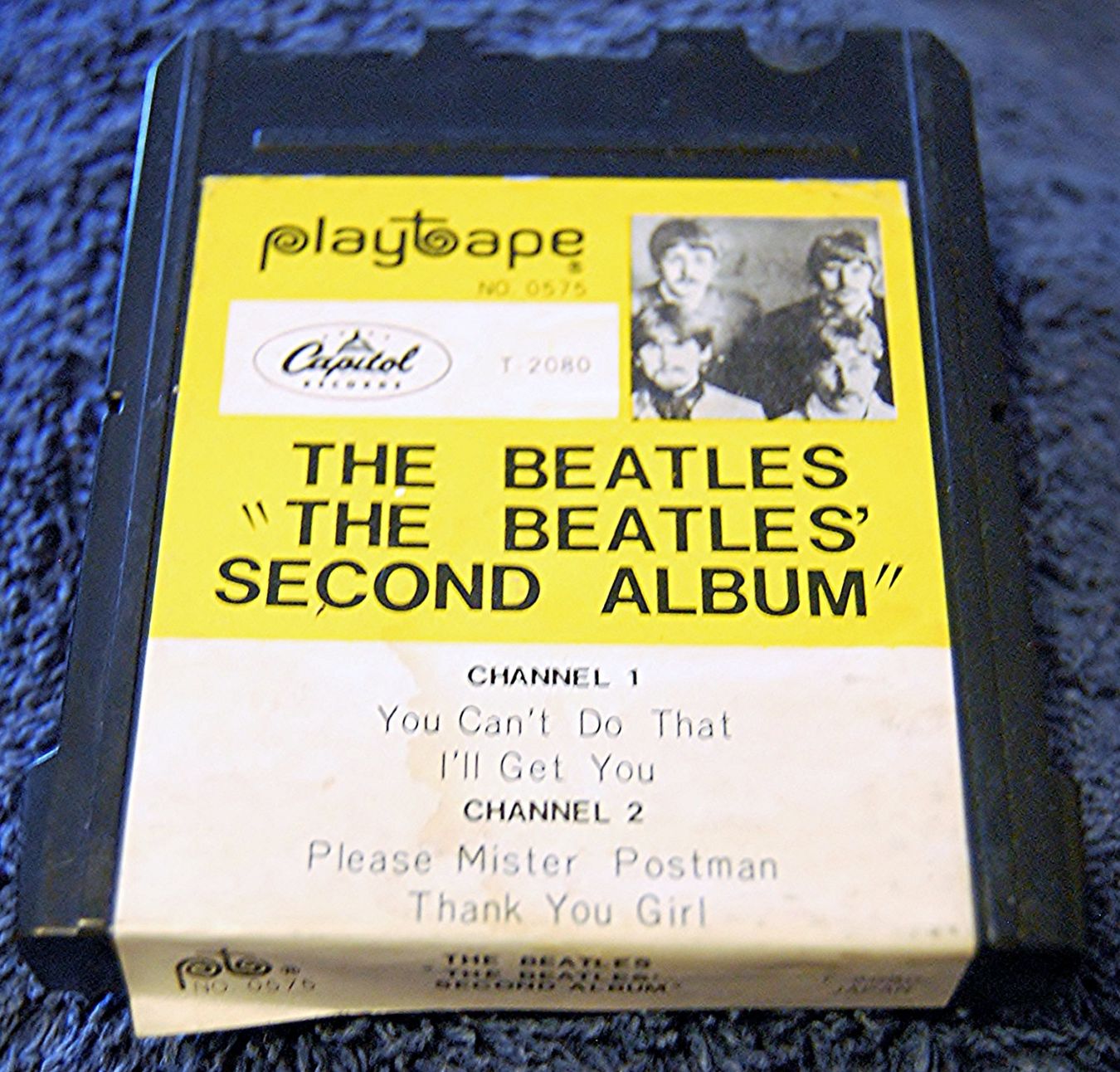 Sometime in 1967, Capitol released Beatles music on a brand new but very short-lived format called "Playtapes." These tape cartridges did not have the capability to include entire albums, so two truncated four-song versions of "The Beatles Second Album" were released in this portable format, "I'll Get You" being on both of these releases. These "Playtapes" are highly collectable today. Sometime in 1967, Capitol released Beatles music on a brand new but very short-lived format called "Playtapes." These tape cartridges did not have the capability to include entire albums, so two truncated four-song versions of "The Beatles Second Album" were released in this portable format, "I'll Get You" being on both of these releases. These "Playtapes" are highly collectable today.
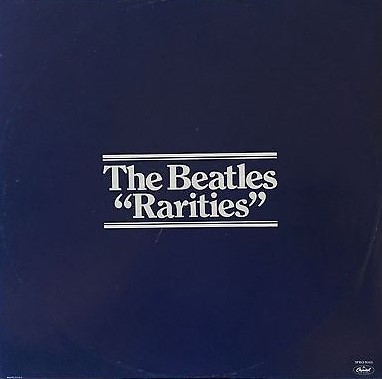 Because of EMI's decision to release a box set that included all of the British Beatles albums as well as an additional album entitled "Rarities" that included songs that did not appear on any British Beatles album, Capitol had initially decided to release this album in America. 2,000 promotional copies of this album were manufactured (#SPRO-8969) and then another unlimited number of advance copies (ESN-SN-12009) were printed in the fall of 1979. "I'll Get You" was included on this proposed album, which was later abondoned due to the fact that this and most of the songs contained therein were available on other Beatles albums in the US at the time. These promotional albums are very collectible today.. Because of EMI's decision to release a box set that included all of the British Beatles albums as well as an additional album entitled "Rarities" that included songs that did not appear on any British Beatles album, Capitol had initially decided to release this album in America. 2,000 promotional copies of this album were manufactured (#SPRO-8969) and then another unlimited number of advance copies (ESN-SN-12009) were printed in the fall of 1979. "I'll Get You" was included on this proposed album, which was later abondoned due to the fact that this and most of the songs contained therein were available on other Beatles albums in the US at the time. These promotional albums are very collectible today..
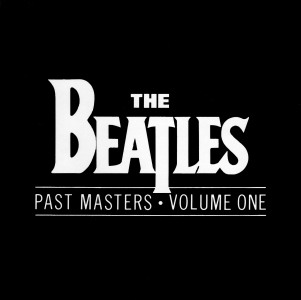 The next release of "I'll Get You" didn't happen until March 8th, 1988 on the "Past Masters, Volume One" compilation. This release, along with Volume Two, was produced to complete The Beatles catalog on compact disc for the first time. While it only reached #148 on the Billboard album chart that year, it remains an essential ingredient of The Beatles collection on CD. Both volumes of "Past Masters" were combined to form a two-album set for vinyl release on October 24th, 1988, while a remastered version was released on CD on September 9th, 2009 and on vinyl on November 12th, 2012. The next release of "I'll Get You" didn't happen until March 8th, 1988 on the "Past Masters, Volume One" compilation. This release, along with Volume Two, was produced to complete The Beatles catalog on compact disc for the first time. While it only reached #148 on the Billboard album chart that year, it remains an essential ingredient of The Beatles collection on CD. Both volumes of "Past Masters" were combined to form a two-album set for vinyl release on October 24th, 1988, while a remastered version was released on CD on September 9th, 2009 and on vinyl on November 12th, 2012.
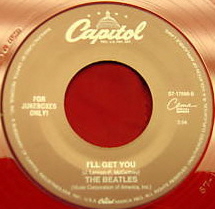 Even though Swan Records was long gone as of 1967, Capitol didn't release the "She Loves You / I'll Get You" single as a replacement until February of 1994. Under the Cema series, with the notation "For Jukeboxes Only" on the label, this was the only time Capitol released the song as a single. And for the collectors out there, it was printed on red vinyl. Even though Swan Records was long gone as of 1967, Capitol didn't release the "She Loves You / I'll Get You" single as a replacement until February of 1994. Under the Cema series, with the notation "For Jukeboxes Only" on the label, this was the only time Capitol released the song as a single. And for the collectors out there, it was printed on red vinyl.
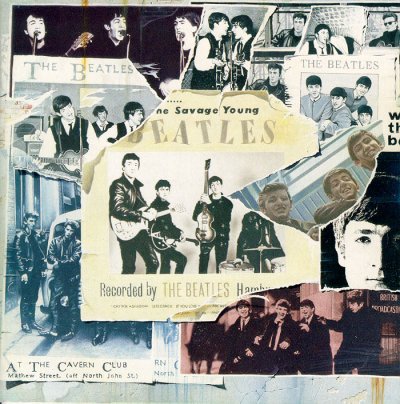 "Anthology 1" was the next release of "I'll Get You," which appeared on November 21st, 1995. The version that appears on this compilation was performed on October 13th, 1963, on the British variety TV show "Val Parnell's Sunday Night At The London Palladium." Noticeable on this recording is the audience screams, which swell during the climactic "All My Trials" chord pattern of the verses. McCartney's idea of including this part in the song proved to be very effective, as witnessed here. "Anthology 1" was the next release of "I'll Get You," which appeared on November 21st, 1995. The version that appears on this compilation was performed on October 13th, 1963, on the British variety TV show "Val Parnell's Sunday Night At The London Palladium." Noticeable on this recording is the audience screams, which swell during the climactic "All My Trials" chord pattern of the verses. McCartney's idea of including this part in the song proved to be very effective, as witnessed here.
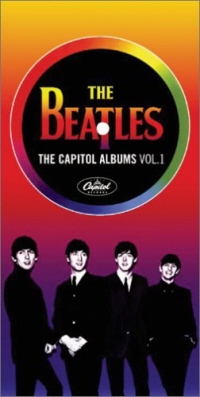 On November 15th, 2004, an interesting box set was released entitled "The Capitol Albums, Vol. 1," which included the first four Capitol albums in both mono and stereo as they originally appeared in 1964. The mono and "duophonic stereo" mixes of "I'll Get You" are featured here as they originally sounded on "The Beatles' Second Album." On November 15th, 2004, an interesting box set was released entitled "The Capitol Albums, Vol. 1," which included the first four Capitol albums in both mono and stereo as they originally appeared in 1964. The mono and "duophonic stereo" mixes of "I'll Get You" are featured here as they originally sounded on "The Beatles' Second Album."
On September 9th, 2009, the new CD box set “The Beatles In Mono” was released, which also features the newly remastered version of the mono mix on its disc "Mono Masters." The vinyl edition of this box set was first released on September 9th, 2014.
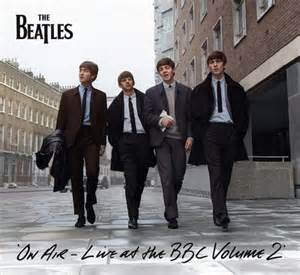 November 11th, 2013 was the release date for the album "On Air - Live At The BBC Volume 2" which featured yet another version of "I'll Get You" as recorded on September 7th, 1963 for the radio program "Saturday Club." Noteworthy differences in this version include the absence of harmonica and also Paul's additional harmony line during the close of each verse. November 11th, 2013 was the release date for the album "On Air - Live At The BBC Volume 2" which featured yet another version of "I'll Get You" as recorded on September 7th, 1963 for the radio program "Saturday Club." Noteworthy differences in this version include the absence of harmonica and also Paul's additional harmony line during the close of each verse.
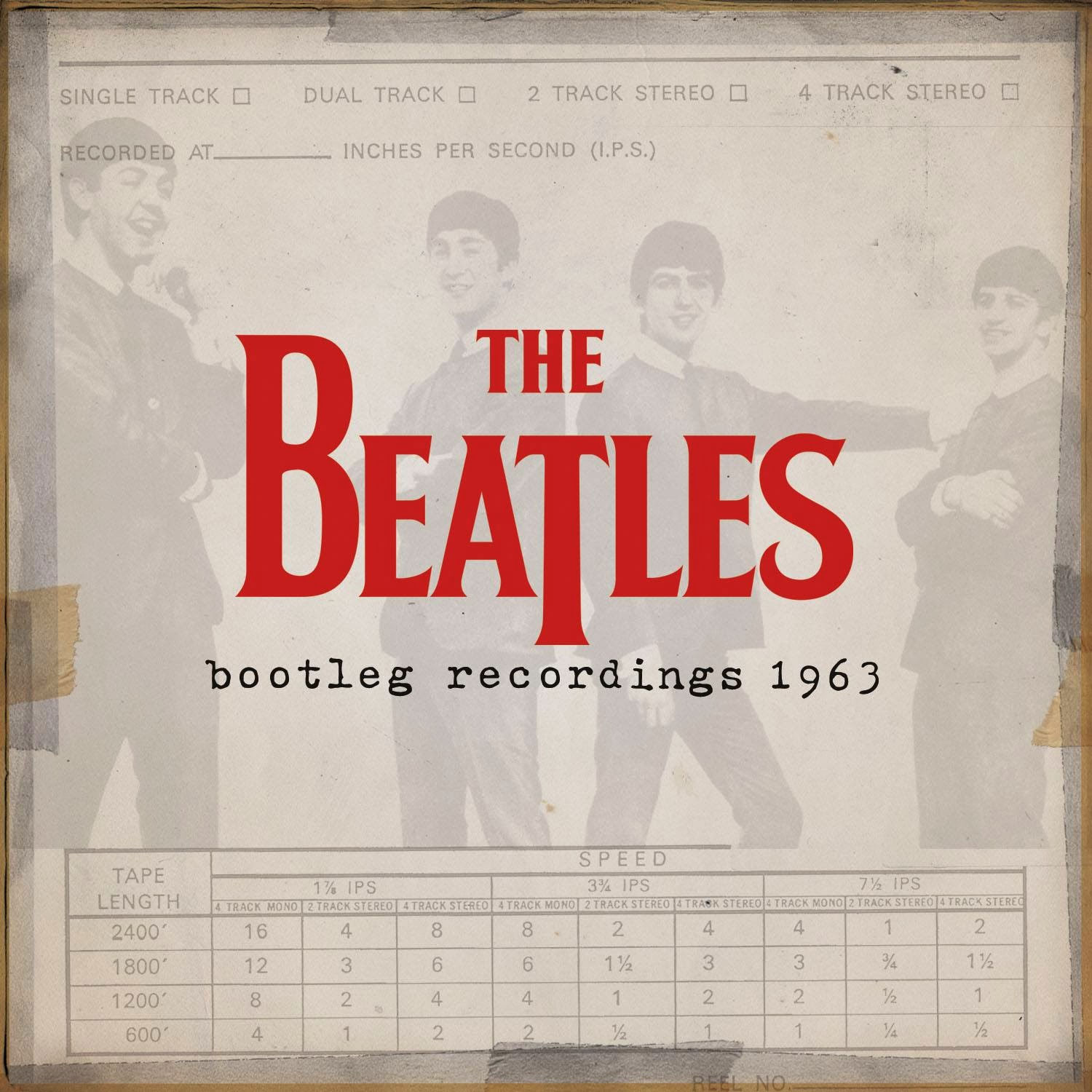 On December 17th, 2013, iTunes released a 59 track compilation album entitled "Bootleg Recordings 1963" only available on their downloading platform, their BBC performance of "I'll Get You" on September 10th, 1963 from the program "Pop Go The Beatles" being included therein. The intended purpose of this release was to extend the copyright of these recordings under European Union law from 50 years (which would have expired at the end of 2013) to 70 years (until 2033), this being considered an official release. This compilation album was only available in the US on that date to those in the know for a number of hours for $39.99 in its entirety or to be purchased as individual tracks, but was later made available for purchase as well. On December 17th, 2013, iTunes released a 59 track compilation album entitled "Bootleg Recordings 1963" only available on their downloading platform, their BBC performance of "I'll Get You" on September 10th, 1963 from the program "Pop Go The Beatles" being included therein. The intended purpose of this release was to extend the copyright of these recordings under European Union law from 50 years (which would have expired at the end of 2013) to 70 years (until 2033), this being considered an official release. This compilation album was only available in the US on that date to those in the know for a number of hours for $39.99 in its entirety or to be purchased as individual tracks, but was later made available for purchase as well.
Live Performances
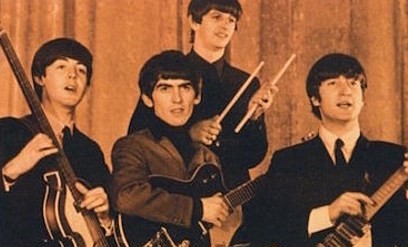 As had been the band's practice, The Beatles began promoting both sides of their latest British single in concert and through the media to give both songs as much exposure as possible. While the a-side of the single, "She Loves You," continued to play a large part in their performances throughout the next year and a half, the b-side, "I'll Get You," had a short performance life of only three months. As had been the band's practice, The Beatles began promoting both sides of their latest British single in concert and through the media to give both songs as much exposure as possible. While the a-side of the single, "She Loves You," continued to play a large part in their performances throughout the next year and a half, the b-side, "I'll Get You," had a short performance life of only three months.
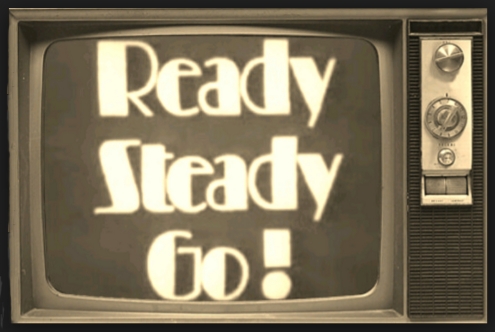 Besides their live shows of this period, they promoted "I'll Get You" via British television. On August 18th, 1963, they lip-synced the song for the TV show "Lucky Stars (Summer Spin)," which was broadcast on August 24th of that year. The Beatles debut on the popular "Ready, Steady, Go!" live television show on October 4th, 1963 featured yet another mimed version of "I'll Get You" while teenagers danced around them on their small podium. A much higher achievement was their appearance on the top rated variety show "Van Parnell's Sunday Night At The London Palladium," broadcast live on October 13th, 1963, this rendition being featured on the "Anthology 1" album. This October 13th, 1963 live television broadcast appears to be the last time The Beatles performed "I'll Get You." Besides their live shows of this period, they promoted "I'll Get You" via British television. On August 18th, 1963, they lip-synced the song for the TV show "Lucky Stars (Summer Spin)," which was broadcast on August 24th of that year. The Beatles debut on the popular "Ready, Steady, Go!" live television show on October 4th, 1963 featured yet another mimed version of "I'll Get You" while teenagers danced around them on their small podium. A much higher achievement was their appearance on the top rated variety show "Van Parnell's Sunday Night At The London Palladium," broadcast live on October 13th, 1963, this rendition being featured on the "Anthology 1" album. This October 13th, 1963 live television broadcast appears to be the last time The Beatles performed "I'll Get You."
 McCartney decided to include "I'll Get You" in the permanent set list of his 2005 "The 'US' Tour," which ran from Sept. 16th (in Miami, Florida) to Nov. 30th (at the Staples Center in Los Angeles, California) of that same year. While this was an interesting inclusion to his set list, it was afterward dropped for his later tours apparently because he felt the song was mostly unfamiliar to the average Beatles fan. McCartney decided to include "I'll Get You" in the permanent set list of his 2005 "The 'US' Tour," which ran from Sept. 16th (in Miami, Florida) to Nov. 30th (at the Staples Center in Los Angeles, California) of that same year. While this was an interesting inclusion to his set list, it was afterward dropped for his later tours apparently because he felt the song was mostly unfamiliar to the average Beatles fan.
Conclusion
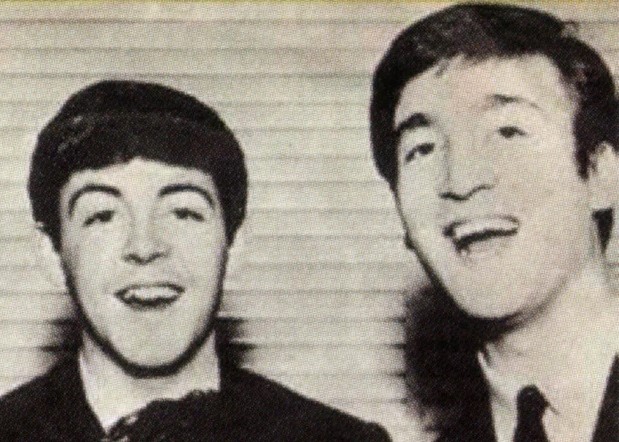 "I'll Get You" was intentionally written with all of the ingredients to be their next hit single. The song has the rhythmic swagger and tempo of its predecessor "From Me To You," it features the catchy lyrical cliché "oh yeah" repeated throughout, and the song's title has two personal pronouns ("I" and "you") which were always intentionally inserted to attract fans. It even features the harmonica as had all of their hits thus far. "I'll Get You" was intentionally written with all of the ingredients to be their next hit single. The song has the rhythmic swagger and tempo of its predecessor "From Me To You," it features the catchy lyrical cliché "oh yeah" repeated throughout, and the song's title has two personal pronouns ("I" and "you") which were always intentionally inserted to attract fans. It even features the harmonica as had all of their hits thus far.
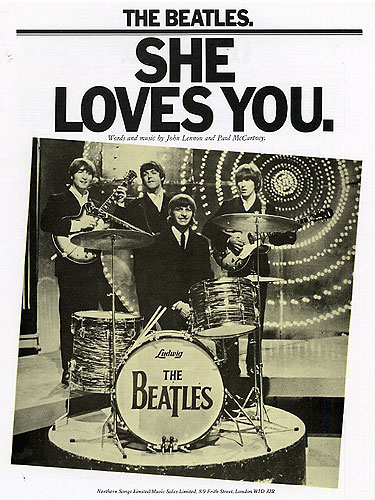 As stated earlier, when "She Loves You" was written days later, it became the obvious choice for attention to be given to instead. We can only speculate what might have happened if "I'll Get You" had been released as the next a-side as they originally intended. It surely would have been a noteworthy progression forward for the band with regard to their songwriting ability. Hindsight shows that they chose to make a giant leap forward by releasing the universally groundbreaking "She Loves You" instead. As stated earlier, when "She Loves You" was written days later, it became the obvious choice for attention to be given to instead. We can only speculate what might have happened if "I'll Get You" had been released as the next a-side as they originally intended. It surely would have been a noteworthy progression forward for the band with regard to their songwriting ability. Hindsight shows that they chose to make a giant leap forward by releasing the universally groundbreaking "She Loves You" instead.
In the process, though, what we have gained is one of the most charming but underrated b-sides in the history of The Beatles cannon. The highly melodic and attractive melody line makes it outshine many popular Beatles tracks released as of that time, as well as throughout their career.
Song Summary
"I'll Get You"
Written by: John Lennon / Paul McCartney
-
Song Written: June 1963
-
Song Recorded: July 1, 1963
-
First US Release Date: September 16, 1963
-
-
-
Highest Chart Position: n/a
-
British Album Release: Parlophone # PCM 1001 "Rarities"
-
Length: 2:05
-
Key: D major
-
Producer: George Martin
-
Engineers: Norman Smith, Geoff Emerick
Instrumentation (most likely):
-
John Lennon - Lead Vocals, Rhythm Guitar (1962 Gibson J160E), Harmonica (Hohner Chromatic), handclaps
-
Paul McCartney - Lead Vocals, Bass Guitar (1961 Hofner 500/1), handclaps
-
George Harrison - Rhythm Guitar (1962 Gretsch 6122 Country Gentleman), Harmony Vocals, handclaps
-
Ringo Starr - Drums (1963 Ludwig Downbeat Oyster Black Pearl), handclaps
Written and compiled by Dave Rybaczewski
|
IF YOU WOULD LIKE TO MAKE A DONATION TO KEEP THIS WEBSITE UP AND RUNNING, PLEASE CLICK BELOW!
Sign Up Below for our MONTHLY BEATLES TRIVIA QUIZ!
|